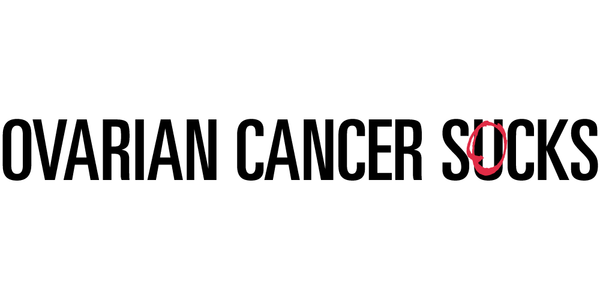
No effective early detection method and vague symptoms, initially mistaken for other less serious illnesses, underpinned the late diagnosis. At that point surviving five-years was almost out of the question, let alone a decade.
“You’ve raised so much money for ovarian cancer research over the years, George, it’s time I did my bit and became the research,” my mum (Mandy) said with a hopeful smile.
She was hopeful that we’d all get past the disclaimer in the clinical trial paperwork that warned that this particular drug was yet to be trialed on humans, and there was a chance of significant side effects or even death.
Hopeful it would give her some more precious time with us.
Hopeful it would provide valuable data to ovarian cancer researchers that would help unlock another piece in the complicated puzzle that is ‘the beast’, as she called it. Hopeful it would help, if not her, women and girls in the future.
All of these hopes were realised.
The first, our reluctant blessing to sign the paperwork and join the trial.
Next, time. Precious time. Time with loved ones and with a remarkably improved quality of life – especially when compared with the years prior which were impacted by seemingly endless chemotherapy.
Her involvement in the trial lasted around two years before the sneaky beast worked its way around the drug and her cancer markers began to rise again. Over that period her third hope was realised. Bloods, urine samples, blood pressure, and numerous scans were routinely taken, creating valuable data for ovarian cancer researchers. Data critical in the armoury being collated in science labs to wage war on ‘the beast’.
When mum was first diagnosed, we learned that it would be unlikely she would survive much beyond 18 months. Like most women and girls who face an ovarian cancer diagnosis, she was diagnosed with late-stage disease.
No effective early detection method and vague symptoms, initially mistaken for other less serious illnesses, underpinned the late diagnosis. At that point surviving five-years was almost out of the question, let alone a decade.
That was in 2006 and since then, the survivability statistics have improved only slightly.
Treatments are still so limited.
In the thick of things, it was hard not to compare ovarian cancer’s grim reality to the progress made by other cancers in diagnostics and treatment. Our little family suddenly paid closer attention to the progress being made elsewhere. Pap smears, mammograms, prostate exams,bowel screenings; all provided a means of catching other cancers in their early stages and upping the chance of beating them. Immunotherapies, hormone therapies, targeted therapies; each appeared to offer patients of those other cancers more options for prolonged life.
Was I impressed? You bet. Jealous? I’d be lying if I said we weren’t. Hopeful? Absolutely. If it could be done for the others, surely it could be done for ovarian cancer. I endlessly urged mum to hang in there, keep fighting.
Perhaps the scientists would have a breakthrough treatment for ovarian cancer just around the corner. I also endlessly pursued fundraising activities for the OCRF – desperately hoping that my family’s contribution to funding research might bring that breakthrough closer. We raised thousands, then tens of thousands, hundreds of thousands and eventually our fun runs, trivia nights, sportsman’s nights and bike rides had raised more than $1 million. Our little family’s network was incredible, and no doubt their generosity played a role in mum’s positive attitude and willed her to fight much longer than she might have otherwise. There’s also no doubt that these funds have helped, but they’re well short of what’s needed to genuinely accelerate change.
We were extremely fortunate that mum was more responsive to chemo than many ovarian cancer patients and that she was a suitable candidate for a couple of clinical trials, meaning she smashed the odds to survive almost 11 years with ovarian cancer. In the end, though, it took her life.
Breast cancer research received 3x more government funding than ovarian cancer between 2016 - 2018.
Most ovarian cancer patients aren’t as lucky as mum. Most quickly become chemo resistant and die within five years of diagnosis. Many aren’t afforded a chance on a clinical trial because the volume of research simply isn’t big enough to get that far.
And that’s because there isn’t enough money being directed towards ovarian cancer research.
Ovarian cancer desperately needs major funding to accelerate research and send survivability skyrocketing.
The need is urgent. The time is now. Support Ovarian Cancer Socks to invest in critical cancer research so that diagnosis is no longer a death sentence for those who develop the disease.
